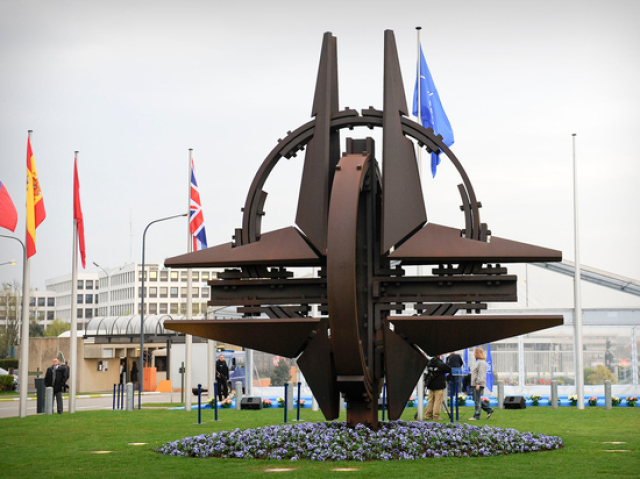The process of Sweden and Finland joining NATO has been continued. On July 4, negotiations between these countries and the Alliance were completed in Brussels. On July 5, the Foreign Ministers of Sweden and Finland signed the protocol of accession at NATO headquarters. On the military significance of NATO expansion in the Northwest in an interview "MK.ru " said Ruslan Pukhov, director of the Center for Analysis of Strategies and Technologies (CAST).

(c) Global Look Press
- Now there are quite contradictory statements about the accession of Sweden and Finland to NATO. A number of political scientists say that this does not pose a serious danger to us. Someone thinks that we need to strengthen the borders, up to the deployment of tactical nuclear weapons there. What do you think their joining the alliance means for us?
- Of course, this means a deterioration of our strategic position. And not because these countries suddenly became anti-Russian overnight - they loved us like a dog before that. However, at least formally they were not integrated into NATO structures, respectively, they behaved cautiously and correctly towards us.
Now their joining the Alliance may lead to the fact that their leadership - especially in conditions when governments change from more sensible to less sensible - is able to start provoking us, which will increase the risk of war. In any case, such a move by Stockholm and Helsinki does not lead to anything good. And the one who says that their entry into NATO means practically nothing to us, I think he is lying.
It's pretty serious. For example, the Finns decided to purchase an American F-35 aircraft. With modern weapons on board, it is a formidable military force that poses a danger, including even for our 5th generation aircraft, which we also have now in very limited quantities.
I think that the Finns probably have largely worked out protocols for suppressing our air defense systems. So it is not surprising that the possibility of using tactical nuclear weapons in this area is becoming more and more urgent for us.
- It is known that the Finnish army is not numerous, there are only 21.5 thousand people in it. And what does it represent in general?
- The Finnish army is a very powerful fighting structure. Not because she fought a lot, but because she had been preparing well to fight with us all her life. And in which case their army will be very motivated. The Finns have good tank units. Wonderful infantry. This is generally a very serious opponent.
- What about the Swedish army?
- The Swedes have a smaller army than the Finns. Their army, relatively speaking, can be called less combative. And then, unlike Finland, we have no land border with the Swedes. Let me remind you that the border with Finland is more than a thousand kilometers.
However, the Swedes have the deepest, centuries-old, Russophobic traditions. And this fact also makes them very unpleasant opponents. If they have to fight us, they will also be very motivated to do it.
- Both countries, by the way, have quite a serious military industry.
- Yes, they have their own military-industrial complex. The Swedes, for example, make airplanes, including long-range radar detection aircraft - air command posts. In general, their military-industrial complex is very developed. The Swedes have historically emphasized significant self-sufficiency.
- Are the Gripen planes Swedish, too?
- Yes, but besides airplanes, they also have their own beautiful corvettes, submarines, missiles... In general, both Sweden and Finland are rich countries. Everything they lack for their own army, they will be able to buy either in other European countries or in the USA, as the Finns do, buying F-35 there.
Now, against the background of our special operation, the military budgets of these countries will be increased, and in the field of defense they will begin to integrate more closely with the rest of the European NATO countries.
Previously, they mainly developed these ties with their neighbors - Norway, Denmark. Now military cooperation will spread more widely to Europe and the United States, which, of course, is bad for us.
This will force us to invest more financially in the arms race. We're already into it. And now it doesn't matter at all - we did it ourselves or we were involved. The score is on the scoreboard. We will have to spend more on defense than before February of this year. This means that less money will go to infrastructure projects, healthcare, and education. There is no need to have any illusions here.
Read the full text of the interview at the link
